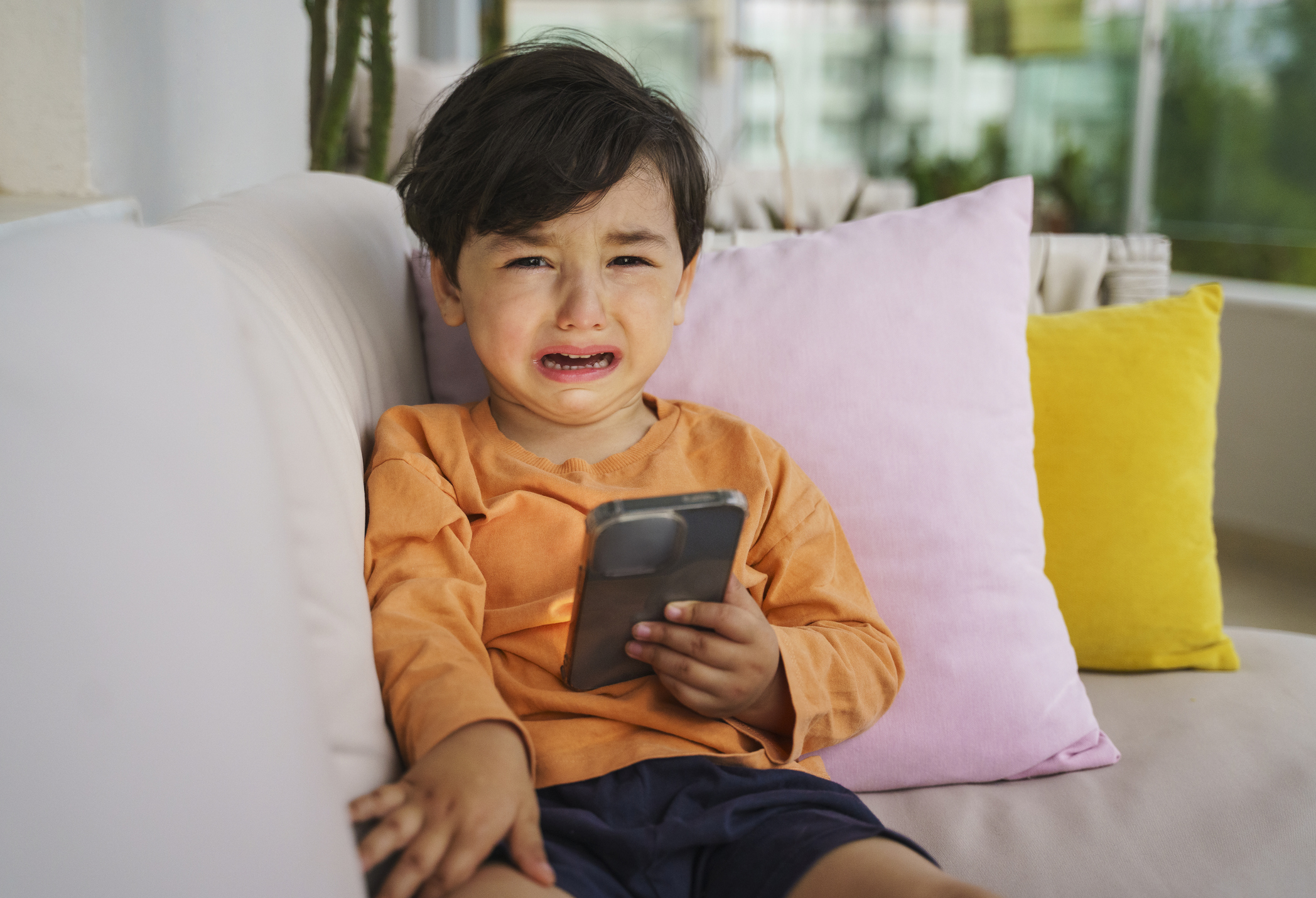
Parents are being warned that this common pastime has been scientifically linked to abnormal behaviour in toddlers - but will you be ditching it?
There's never such thing as a good time for a toddler tantrum, but what if you knew that limiting one common pastime could reduce the chances of your little one kicking up a fuss? As parents face the ongoing battle of how to reduce screen time, there are many benefits to watching TV. But while sensory play is more important than you think, the constant changes on-screen do not provide infants with enough time to process the sensory information they are seeing - and new research has some alarming results.
Experts have looked at the science and there's a growing amount of data that shows a link between the developmental outcomes and screen time in toddlers and young children - and it might make you want to limit kids' screen time using things like this 60-minute visual timer for kids on Amazon or these Etsy is selling these kids screen time tokens.
In a study published by the journal JAMA Pediatrics, researchers at Drexel University's College of Medicine in Philadelphia have found a link between TV viewing time and unusual sensory behaviours. This includes young children showing a disengagement or disinterest in activities, seeking more intense environmental stimulation and also being overwhelmed by intense stimuli like sounds and bright lights.

The team analysed data from the National Child's Study, which looked into the TV habits of 1,471 youngsters who were of baby and toddler ages between 2011 and 2014. Tests on their sensory processing outcomes were made at 33 months and parents or caregivers were also quizzed on their child's behaviour and reactions to environmental stimuli.
And the results are remarkable - after just 12 months of screen exposure a toddler was 105 per cent more likely to show 'high' sensory behaviours than those who hadn't - and it doesn't stop there. At 18 months, a child who has an additional one hour of daily screen time was linked to a 23 per cent increased chance of displaying these behaviours. And by the time a child is 24 months old, each extra hour of screen time is associated with a 20 per cent increased chance of a child exhibiting these behaviours nine months later.
Karen Heffler, MD, an associate professor of Psychiatry in Drexel's College of Medicine and lead author on the study, said in a statement. "This association could have important implications for attention deficit hyperactivity disorder and autism, as atypical sensory processing is much more prevalent in these populations. Repetitive behaviour, such as that seen in autism spectrum disorder, is highly correlated with atypical sensory processing. Future work may determine whether early life screen time could fuel the sensory brain hyperconnectivity seen in autism spectrum disorders, such as heightened brain responses to sensory stimulation."
High sensory behaviours include
- Excessively touching or smelling objects
- Being easily overwhelmed by lights and noise
- Not registering certain environmental stimuli
- Avoiding sensations like having their teeth brushed
However, it's not all doom and gloom as more research is needed to fully confirm the association between screentime and behaviour, particularly to establish any underlying cause. And if you're wondering how much screen time is too much, the American Academy of Child and Adolescent Psychiatry recommends children under 18 months should limit screen time to video chatting only, while 18- to 24-month-olds should be limited to watching educational programs with a caregiver. By age two to five, the association recommends a maximum of one hour of non-educational screentime on weekdays and three hours on weekends.
In other family news, if your child struggles with anger, you might like to read this advice: ‘I’m a psychologist and here are 4 ways to teach your kids how to manage their anger’ . Struggle with the 'I'm not going to school argument'? check out the advice on dealing with the back-to-school battle.







